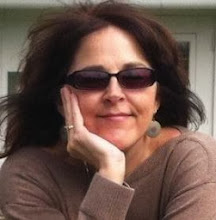We are in the middle of the New Mexico desert when Nancy reveals that her mother has cancer. It is night time, and we are stretched out on the hood of her Saturn on a blanket she bought for five bucks in Tijuana many years ago when we were there. We each bought one—Nancy, Sue, me—on our outlaw road trip where we all misbehaved. But we are older now, and things are happening.
Don’t be scared, Rachel, she tells me. Nancy comforting me, and it’s her mother who’s dying. But I have recently buried someone who was murdered—along with the man who put his neck in a noose and kicked away the chair—and I am afraid of all this dying. And there is still the memory of the rust colored blood stain near the bed, even after the cleaning service had been there. And me, tip-toeing down the basement steps on that quiet August afternoon, and finding the chair still under the beam.
I sigh and look to the heavens, littered with stars and unknowable things. And in the darkness, on that warm night, we share stories of her mother. Of Joyce. The woman with the Grand Canyon smile who sits at the kitchen table with her back to the stove—an unintended statement—over coffee and a pack of her beloved Marlboroughs. A woman who dreamed of a much bigger life than she finds at a table in a quiet Upstate town, her husband in the next room in front of the TV...
I worry, Nancy says, that I haven’t learned everything I need her to tell me. And it’s this statement that scares me the most. My own mother a thousand miles away, and me not always listening… Yes, what do I need to know?
It’s another two years before Nancy takes a break from grad school to care for her mother. Helping Joyce find dignity in death. Nancy tells me later it was like a machine shutting down. Brave, brave daughter helping her mom let go…
And I am an inadequate friend, a shameful friend, when Nancy comes to visit after all that. She is hunched and a bit broken—as if she’s been stepping on glass. Is she, my new friends ask, much older than you? I try to explain what I cannot describe—the loss we feel when we bury our mothers. Yet what do I know about that? I cannot know what Nancy has given up, what she feels she’s been given... On this visit, Nancy drinks too much and finds all the places in me that hurt, that will react to her pain. I do not recognize that she is a motherless child—I grow impatient, defensive—that she is a woman walking alone. A woman terrified… And instead of giving her what she needs, what she deserves, I litter more glass under her footsteps. Tell her one night, as we sit outside, to stop. Just. Stop.
Who is this woman I threaten? This friend? She is Keats’ beauty—his truth—delivered American style. Delivered in a burlap bag. Delivered with a cold hard blow to the jaw. Delivered in the right question, the right silence, a knowing nod of her head. I get mad at her sometimes—this woman who can laugh, who can heal, who can sprinkle the coarse, hard grounds of life into your living. When she wants to. So why won’t she let others see the woman I know? Because she reveals her when she’s ready. When circumstances demand. Like when the old man in the nursing home needs something to think about, other than his own beckoning fate—Nancy’s laugh mingling with his shaky one, down a quiet, sterile hallway one night when I stop by to pick up her keys. Or the many times she took Tammy, a young woman defeated by MS, and her customized wheelchair, lifting both of them into her overburdened Chevette—the headrest sticking out of the hatchback—to go to the movies. This, while the rest of us were dancing, out celebrating being young. Or when she gives her income tax refund to an unknown single mother; drives 225 miles roundtrip to get a newly settled Afghan family the stroller I was going to throw out; uses the last of her vacation days to drive to Biloxi after The Storm. Part of no organization, just her in her used Saturn, a few pennies to spare, to roll up her sleeves, to listen, to let one dazed woman sitting on a ravaged front porch know that it was going to be okay…
Nancy walks the quiet walk of her own convictions, cracking acorns with her teeth—as rough around the edges as humanity itself. We, who invest in the silicone heroes offered up on TV, know nothing about this woman who lives and works where she is needed the most: among indigenous peoples, the poor, the sick, the dying. Hey sister! she says when I call…
This is the friend I threatened that night when she needed saving… After all those times that she has saved me.
***
Subscribe to:
Post Comments (Atom)

No comments:
Post a Comment